On Investing
From market moves to the latest economic news, On Investing looks below the surface of the headline data to bring you fresh insights on what's happening and why—and what the implications are for your portfolio.
Closing Thoughts on 2025
At the end of 2025, Liz Ann Sonders and Kathy Jones assess the resiliency of the economy.
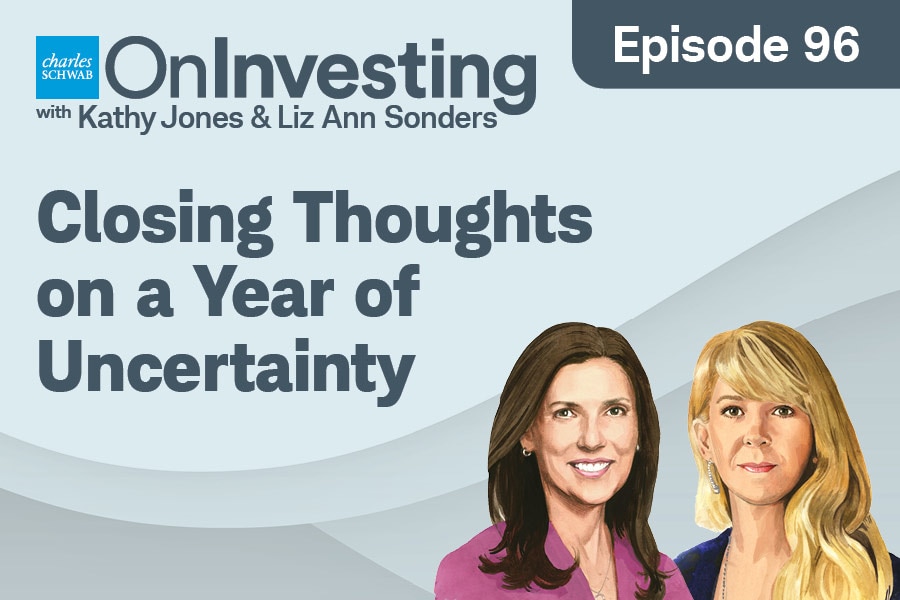
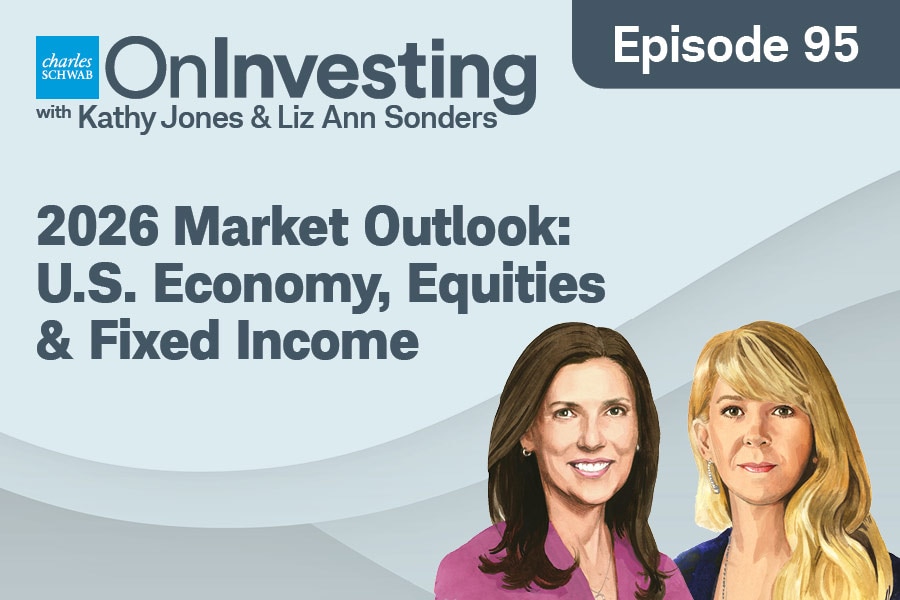
2026 Market Outlook
As we approach 2026, what can investors expect from the equities market, fixed income, and the overall US economy in the new year?
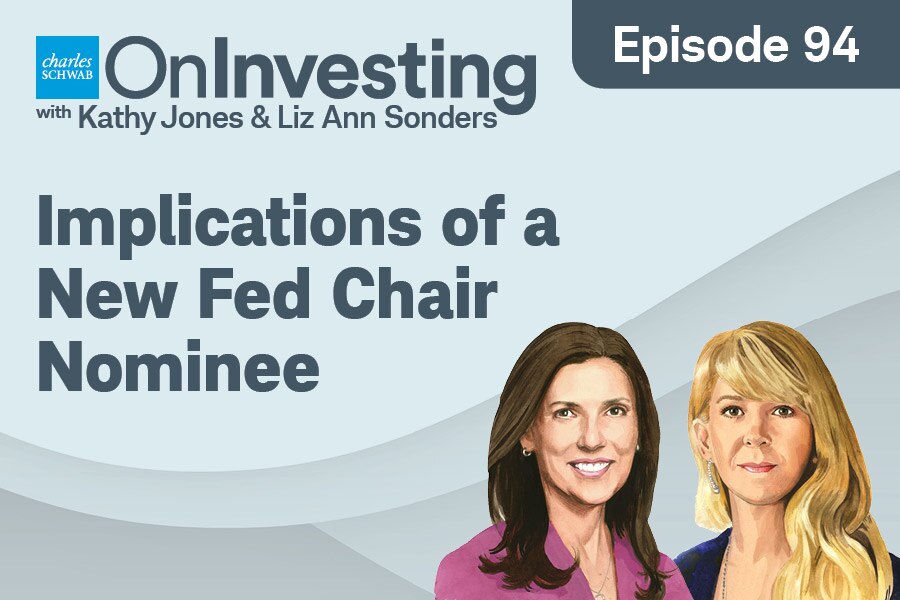
Markets Expect a Cut
Liz Ann Sonders and Kathy Jones review the Federal Reserve’s latest dilemma and the complexity of policy setting in this environment.
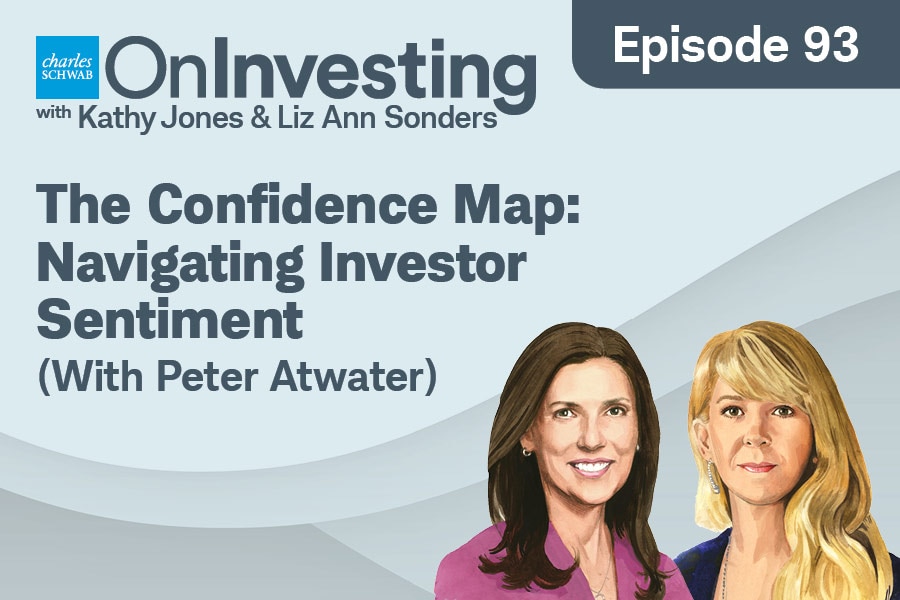
The Confidence Map
Liz Ann Sonders and Peter Atwater delve into how investor confidence, market narratives, and the "K-shaped economy" are influencing the current market cycle.
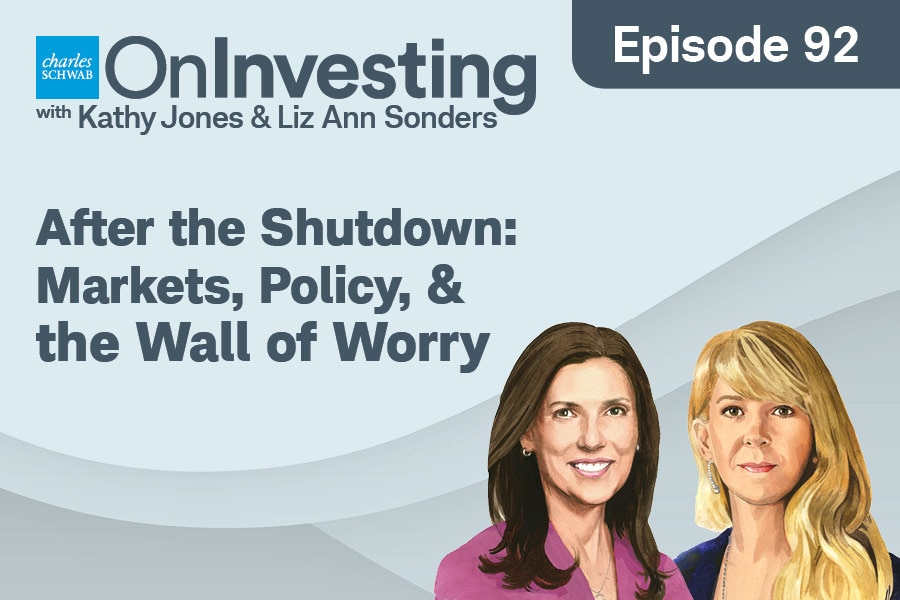
After the Shutdown
Mike Townsend joins the show to discuss the political implications of the recent government shutdown and how it might affect the markets.
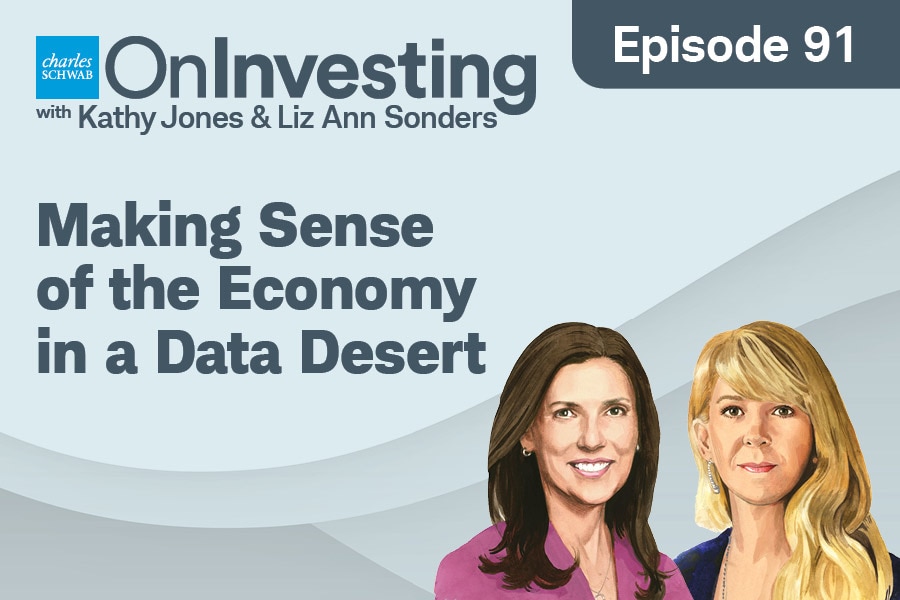
The Economy in a Data Desert
Liz Ann Sonders and Kathy Jones discuss the economic data implications of the ongoing government shutdown and which indicators matter most.
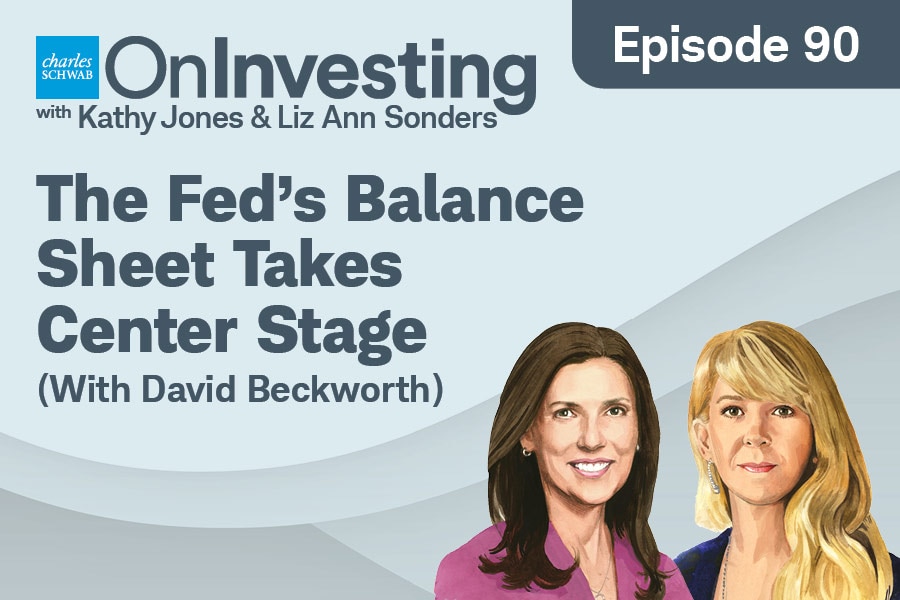
Fed’s Balance Sheet
David Beckworth and Kathy Jones discuss the evolution of the Fed’s balance sheet and the future of digital currencies.
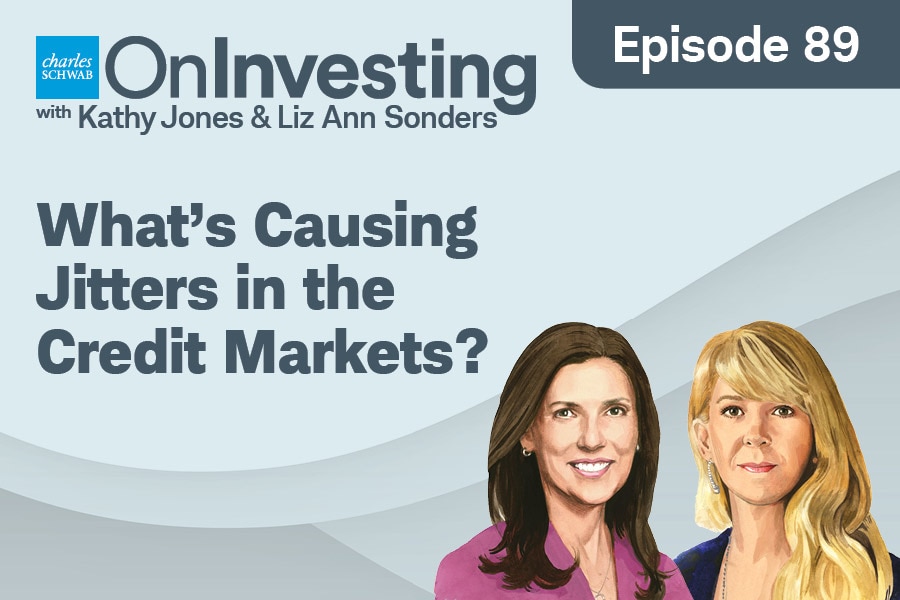
Jitters in the Credit Markets
Kathy Jones and Collin Martin discuss why some high-profile failures and defaults have sent jitters through the credit markets.
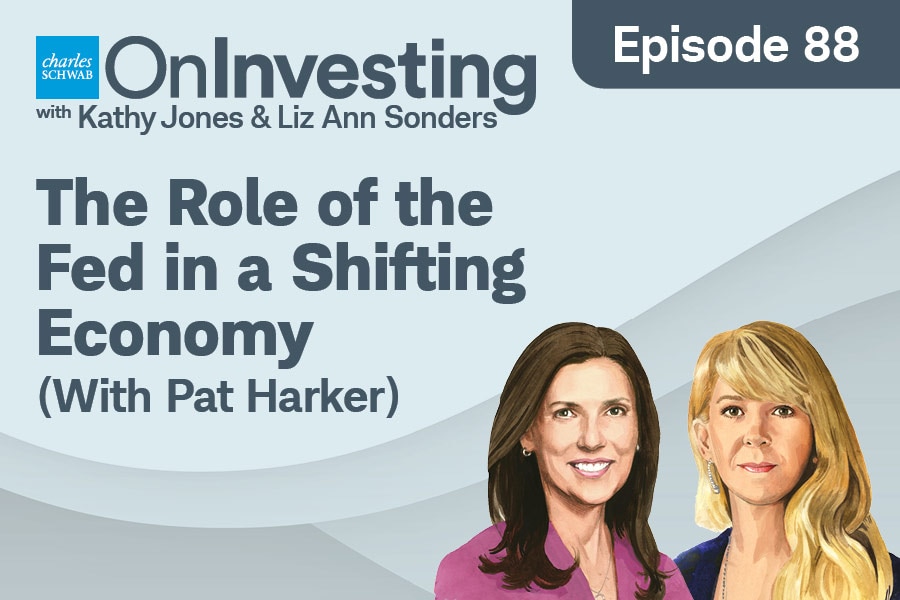
Monetary vs. Fiscal Policy
Patrick Harker, former President of the Federal Reserve Bank of Philadelphia, joins the show to discuss monetary policy, inflation expectations, and more.
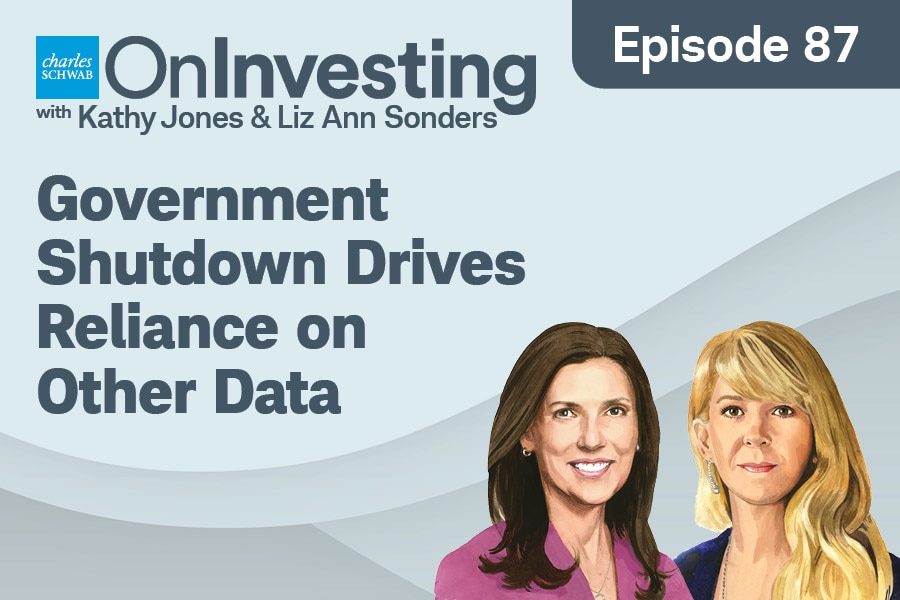
Reliance on Alternative Data
With the U.S. government shutdown and the absence of some employment data, what proxies are analysts using to assess the health of the economy?
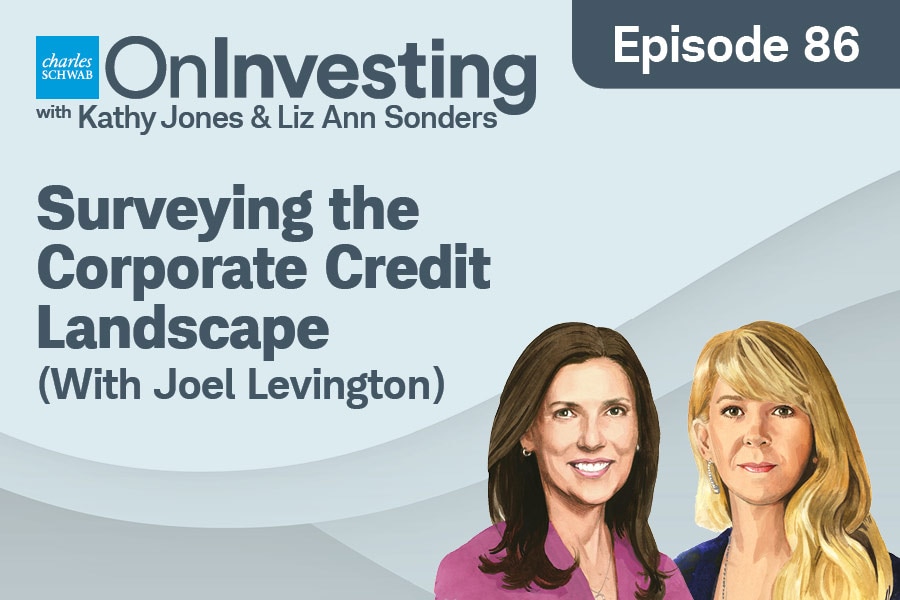
Corporate Credit Landscape
Joel Levington joins the show to discuss corporate credit, private credit, the auto industry, ratings agencies, and more.
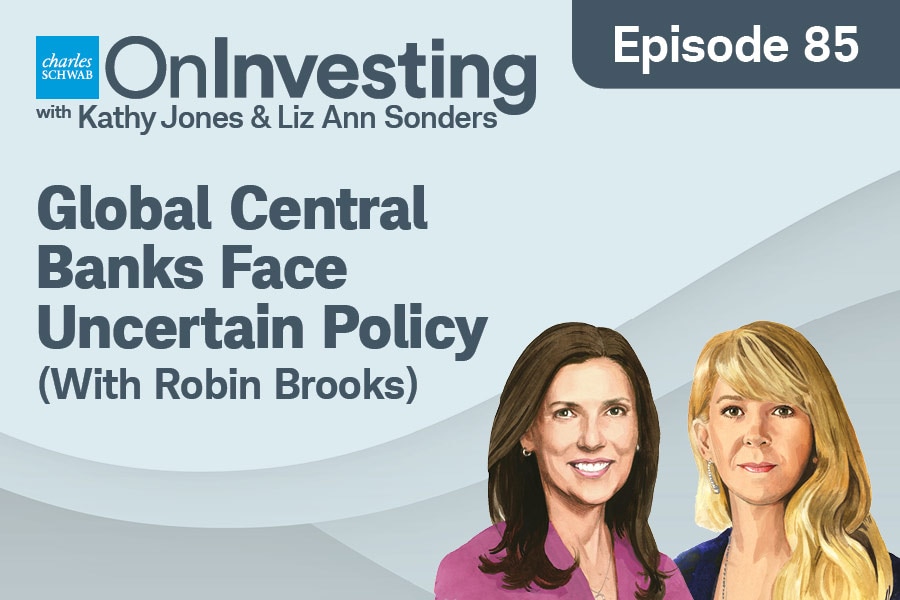
Central Banks Face Uncertainty
Robin Brooks of the Brookings Institution joins Kathy Jones for a discussion about central bank policy around the world and the status of the dollar.
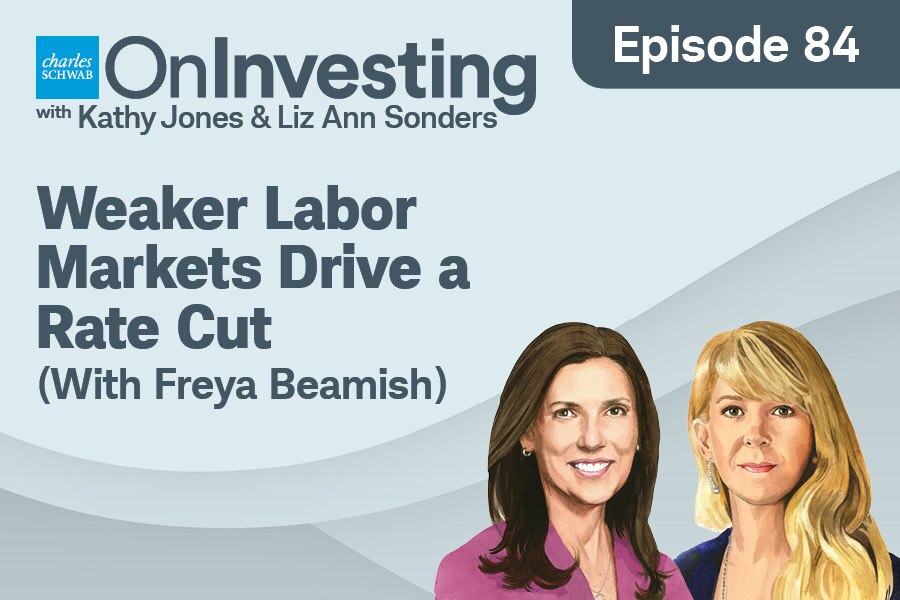
Labor Markets & Rate Cut
The Fed finally cuts rates, and Freya Beamish joins the show to discuss evolving labor market dynamics.
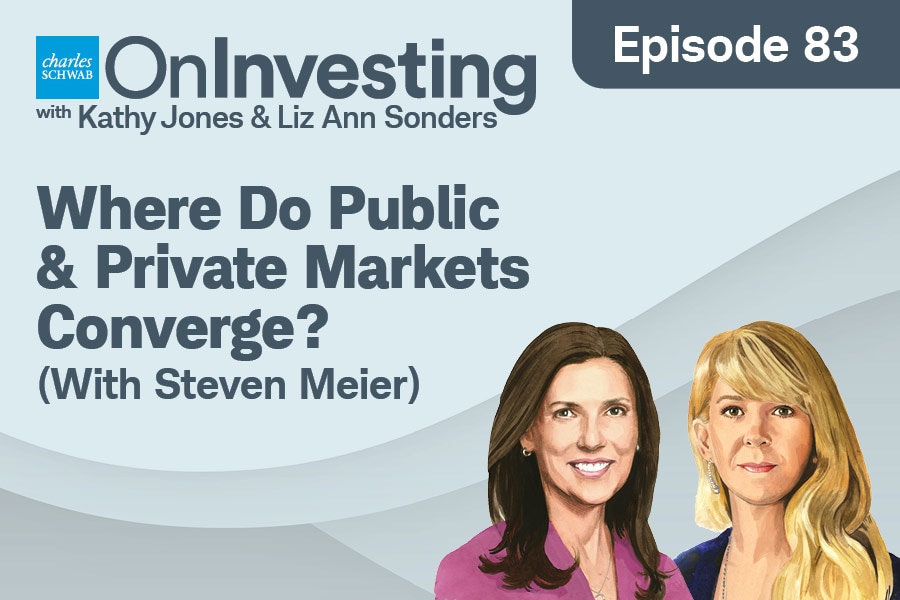
Public & Private Markets Converge?
Steven Meier, Deputy Comptroller and Chief Investment Officer for the New York City retirement systems, joins the show to discuss capital markets and public finance.
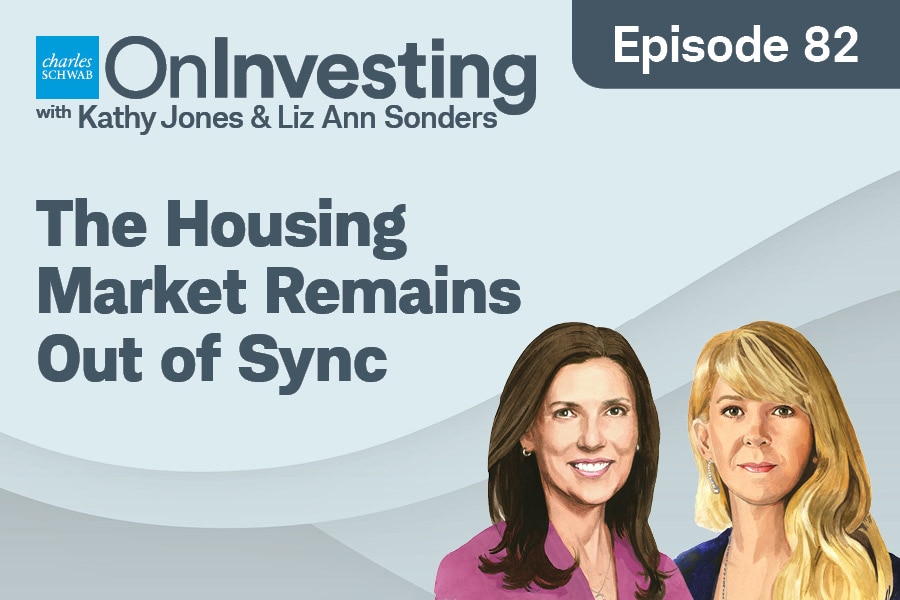
Housing Market Dynamics
Liz Ann Sonders and Kathy Jones examine the state of the housing market in terms of real incomes, affordability, and willingness to take on debt.
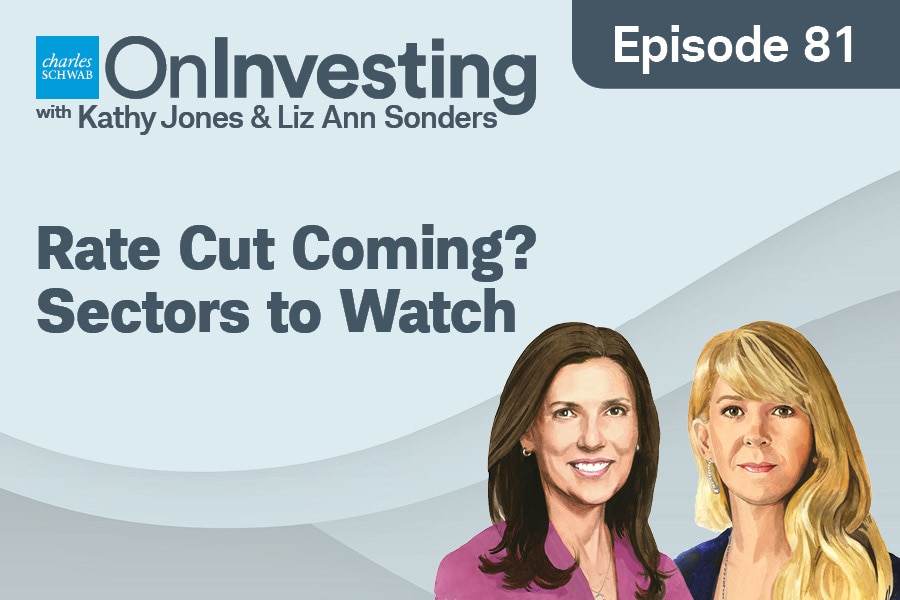
Rate Cut Coming? Sectors to Watch
Kevin Gordon joins the show to discuss Fed independence and the potential impact of rate changes on various sectors of the economy.
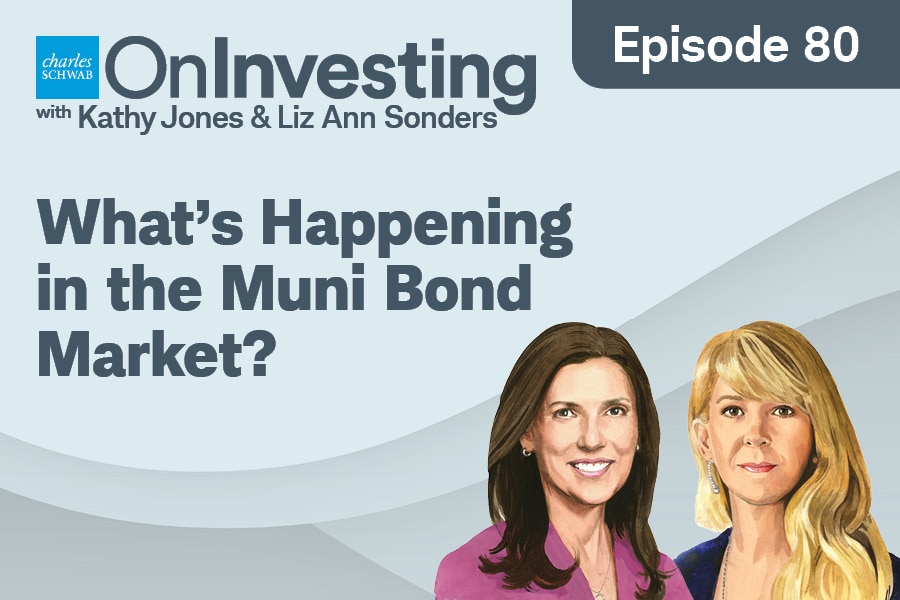
Muni Bond Market Update
Cooper Howard joins the show to discuss trends and opportunities in the muni bond market.
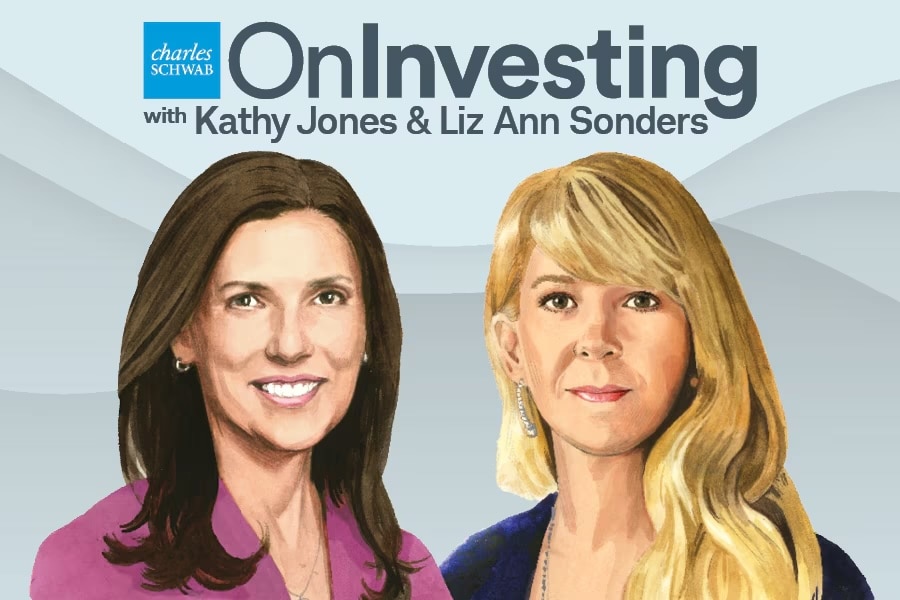
Inflation Edges Up
Liz Ann Sonders and Kathy Jones break down the latest CPI data, consider a potential rate cut, and take a look at concentration in the stock market.

What's the Tariff End Game?
Kevin Gordon joins Kathy Jones to discuss the latest economic indicators, including implications from the latest round of tariffs.
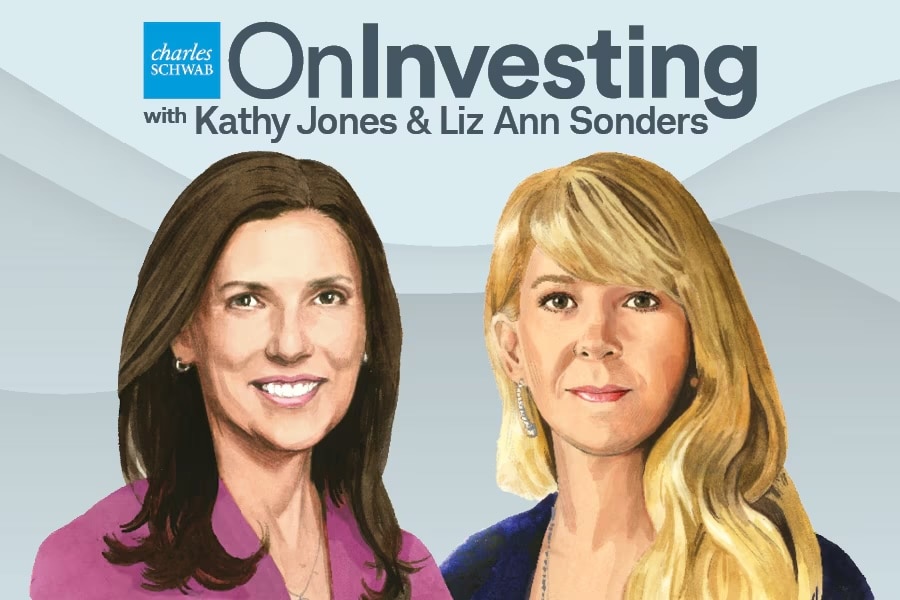
Trends in the Credit Markets
Kathy Jones and Collin Martin explore leveraged loan market dynamics, recent issuance trends, and TIPS as an inflation hedge.

Latest Inflation Numbers
Kathy Jones and Liz Ann Sonders analyze the latest inflation data, stagnation in the housing market, and other economic trends.
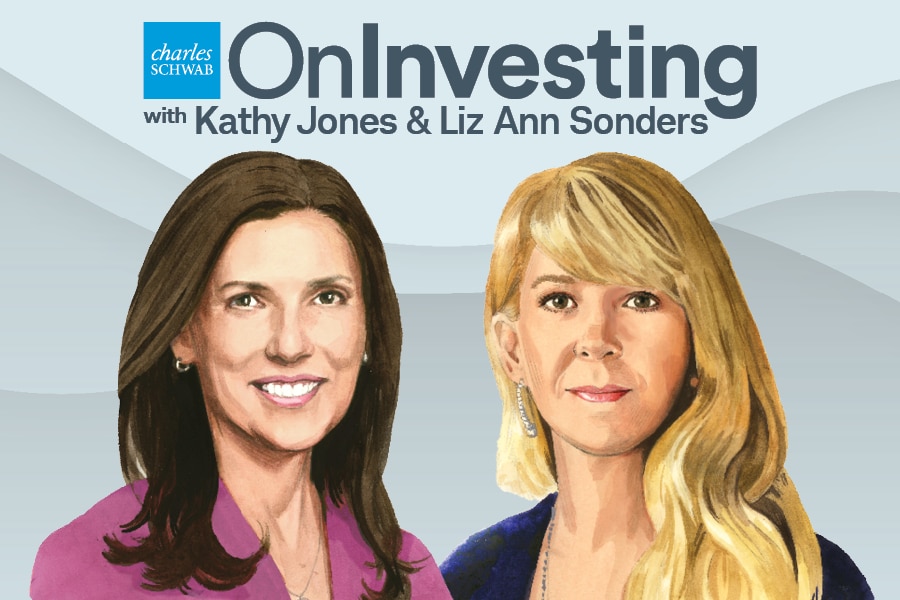
Tariffs & Deficits
Kathy Jones and Liz Ann Sonders discuss the latest tariff news and the implications of the recently passed "One Big Beautiful Bill."

Markets and Economy
Geopolitics & the Markets
Mike Townsend joins the show to discuss the news out of Washington, the evolving geopolitical landscape, and the market's reaction.

Markets and Economy
'Muddiness' & Uncertainty
Liz Ann Sonders and Cameron Dawson of NewEdge Wealth discuss the uncertainty in the market and how that could impact portfolio construction.

Markets and Economy
Tariff-Related Impacts Continue
How could ongoing tariffs and the “One Big Beautiful Bill” impact the US economy?

Markets and Economy
Sentiment vs. Hard Data
Liz Ann Sonders and Kathy Jones analyze the divergence between hard economic data and consumer sentiment in the markets.

Markets and Economy
Navigating the 'Funky' Market Environment
Longtime market technician Helene Meisler joins Liz Ann Sonders to explore market trends, sentiment, and volatility, offering insights on the evolving investing landscape.

Markets and Economy
Understanding Muni Bonds
Tariffs change directions again, and Cooper Howard discusses the appeal of municipal bonds.

Markets and Economy
Inflation or Unemployment?
Kathy Jones and Collin Martin break down the Fed's current predicament and what the future might hold for interest rates.

Markets and Economy
Confidence in U.S. Investability
Liz Ann Sonders and Dario Perkins of TS Lombard discuss the potential for a recession, the labor market, the Fed's next move, and more.

Markets and Economy
Bond Markets React to Uncertainty
Collin Martin and Kathy Jones dissect the current environment for different types of bonds and bond investors.

Markets and Economy
Market Volatility & Dividends
Deane Antoniou joins Liz Ann Sonders for a discussion about long-term retirement strategies and dividend-paying stocks.

Markets and Economy
Recent Market Volatility
After a turbulent few days in the market, what strategies should investors consider?

Markets and Economy
Labor Market & Tariffs
Nela Richardson of ADP Research breaks down the labor market data.

Markets and Economy
Avoiding Unforced Errors
Liz Ann Sonders sits down with Barry Ritholtz for a discussion about common mistakes and how not to invest.

Markets and Economy
The Risk of Stagflation
Liz Ann Sonders and Kathy Jones analyze the recent Fed meeting and the outlook for potential stagflation.